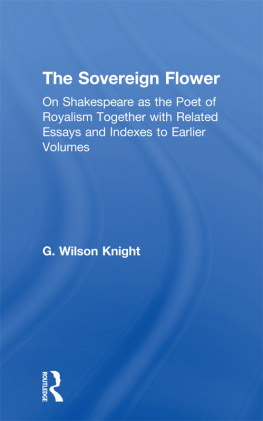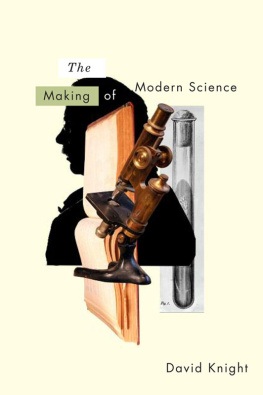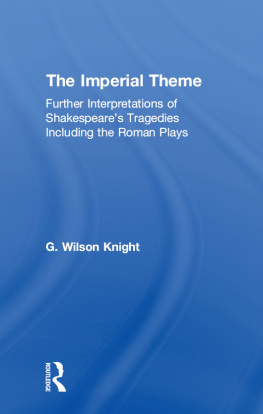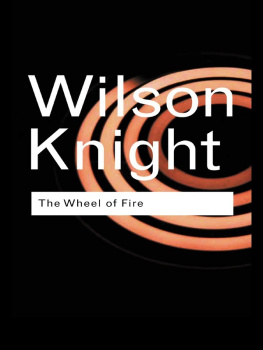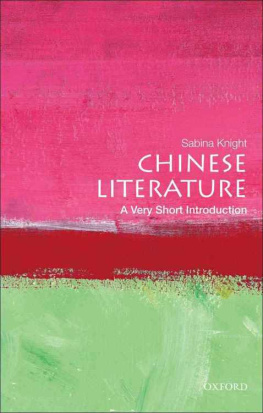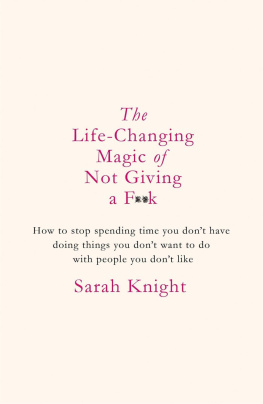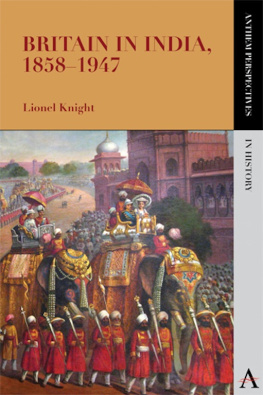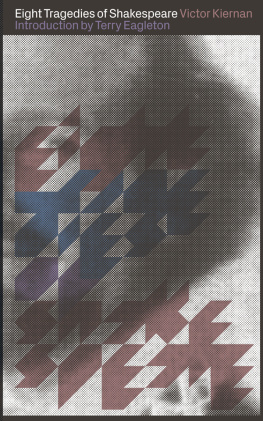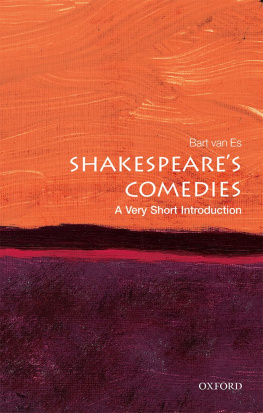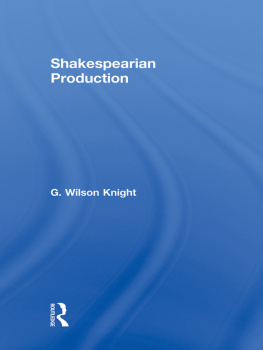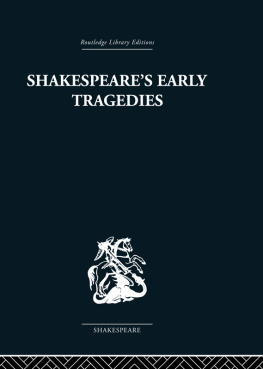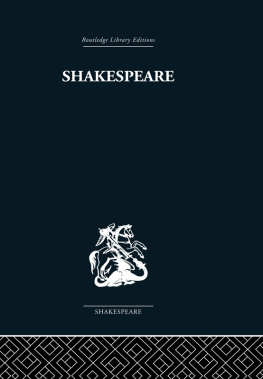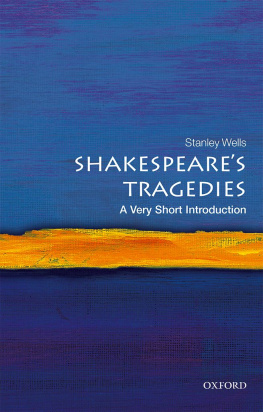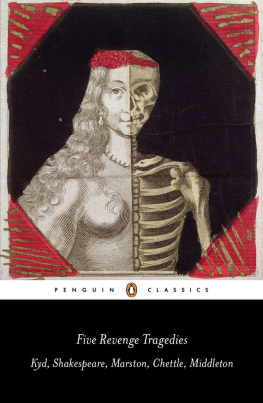Knight - Sovereign Flower: Wilson Kni
Here you can read online Knight - Sovereign Flower: Wilson Kni full text of the book (entire story) in english for free. Download pdf and epub, get meaning, cover and reviews about this ebook. publisher: Routledge, genre: Romance novel. Description of the work, (preface) as well as reviews are available. Best literature library LitArk.com created for fans of good reading and offers a wide selection of genres:
Romance novel
Science fiction
Adventure
Detective
Science
History
Home and family
Prose
Art
Politics
Computer
Non-fiction
Religion
Business
Children
Humor
Choose a favorite category and find really read worthwhile books. Enjoy immersion in the world of imagination, feel the emotions of the characters or learn something new for yourself, make an fascinating discovery.
- Book:Sovereign Flower: Wilson Kni
- Author:
- Publisher:Routledge
- Genre:
- Rating:3 / 5
- Favourites:Add to favourites
- Your mark:
- 60
- 1
- 2
- 3
- 4
- 5
Sovereign Flower: Wilson Kni: summary, description and annotation
We offer to read an annotation, description, summary or preface (depends on what the author of the book "Sovereign Flower: Wilson Kni" wrote himself). If you haven't found the necessary information about the book — write in the comments, we will try to find it.
Sovereign Flower: Wilson Kni — read online for free the complete book (whole text) full work
Below is the text of the book, divided by pages. System saving the place of the last page read, allows you to conveniently read the book "Sovereign Flower: Wilson Kni" online for free, without having to search again every time where you left off. Put a bookmark, and you can go to the page where you finished reading at any time.
Font size:
Interval:
Bookmark:
G. WILSON KNIGHT
COLLECTED WORKS
G. WILSON KNIGHT
COLLECTED WORKS
VOLUME IV
THE SOVEREIGN FLOWER
On Shakespeare as the Poet of Royalism
Together with Related Essays and Indexes
to Earlier Volumes

First published 1958 by Methuen & Co. Ltd
This edition published 2002 by Routledge
2 Park Square, Milton Park, Abingdon, Oxon 0X14 4RN
Simultaneously published in the USA and Canada
by Routledge
270 Madison Avenue, New York, NY 10016
Routledge is an imprint of the Taylor & Francis Group
Transferred to digital printing 2010
1958 by G. Wilson Knight
All rights reserved. No part of this book may be reprinted or
reproduced or utilised in any form or by any electronic, mechanical,
or other means, now known or hereafter invented, including
photocopying and recording, or in any information storage or
retrieval system, without permission in writing from the publishers.
British Library Cataloguing in Publication Data
A catalogue record for this book is available from the British Library
Library of Congress Cataloging in Publication Data
A catalog record for this book has been requested
ISBN 978-0-415-27896-6 (Set)
ISBN 978-0-415-29073-9 (Volume IV) (hbk)
ISBN 978-0-415-60662-2 (Volume IV) (pbk)
Publishers Note
The publisher has gone to great lengths to ensure the quality of this
reprint but points out that some imperfections in the original book
may be apparent.

Contents
Preface
T his is the last, and likely to remain the last, of my Shakespearian studies. The five main volumes form a set, with The Mutual Flame as a pendant. Indexes to this, and the other four volumes, are included, on a system explained below, (p. 295) by Dr Patricia Ball. My Principles of Shakespearian Production stands rather outside this sequence, being in a different vein. First published in 1936 by Messrs Faber & Faber, it was reissued in 1949 by Penguin Books, and is at present out of print: it will, I hope, eventually be reissued, perhaps with some additions.
The composition of this final volume caused some trouble. The first intention was to start with a narrative account of my work during the war on Shakespeare and the Nation, and to follow with the original text of The Olive and the Sword, as published in 1944 by the Oxford University Press. It was, however, considered by my advisers that so much war-time material would be out of place in a contemporary publication, and I have accordingly started with The Olive and the Sword under the title This Sceptred Isle, giving it new introductory and concluding sections, and removing references which might appear inapposite today. The new title had already been used for a 1940 booklet, and later for my various lecture-recitals culminating in the Westminster Theatre production of 1941; but its present use is reasonable, since from the start it has served as a generic title for this strand in my work. The narrative account of my various war-time publications and recitals (of which some of the concluding passages are duplicated on pages 2739 below) is now lodged, in typescript, under the title A Royal Propaganda in the British Museum and also in the Shakespeare Memorial Library of the Birmingham Reference Library. For the rest, I have remained content to supplement the statement of my first chapter by what is covered by from Shakespeare as the poet of England to Shakespeare as the poet of royalism, in a wide sense; though it remains true that all the main points of royalistic thinking are to be found within the earlier statements.
The essay on Alls Well that Ends Well is new, and so is the chapter on Shakespeares Names, based on notes which I have had by me for many years, delivered as a lecture at the University of Liverpool in 1956, and now expanded for my present purpose. The Shakespearian Integrity, first published in The Burning Oracle in 1939, constitutes my only comprehensive statement on Shakespeare. Elsewhere I concentrate on this or that aspect, with all the attendant risks of apparent over-emphasis. The essay is not faultless, and important considerations are lacking, but it serves to show the kind of thing I should have done, had I ever attempted a single discursive study of Shakespeares total impact. The last chapter, Some Notable Fallacies, is new.
To are reprints of early essays, the second serving, if the matter be considered of any interest, to show that the main lines later taken by my Shakespearian investigations were in formulation two years before the publication of The Wheel of Fire.
Some notes as to other early pieces not included in my main volumes may here be in place. Contributions to The Times Literary Supplement from 1926 onwards can be traced through the indexes of that journal. My first published article was a note on Wordsworths Immortality Ode in The Adelphi of September 1926. This was followed by an essay, which won a prize offered by John Middleton Murry as editor, called Brutus and Cassius, in The Adelphi of March 1927, and a note on tragedy in the following June.was published the following year in Myth and Miracle. The typescript of a full-length book on this same theme of the Final Plays, under the title Thaisa, had been searching for a publisher during 1928, and is now lodged in the Shakespeare Memorial Library at Birmingham. With it I have bound up the following papers: some letters concerning Thaisa from publishers, together with one from the present Poet Laureate, Mr John Masefield; an inscribed copy of Mr T. S. Eliots Marina, kindly presented to me on the publication of that exquisite poem in 1930; an accurate press report of a lecture on Shakespearian tragedy, towards the end of 1927; a publishers letter of 1925 on my first full-length, but quite unshaped, attempt at a work of Shakespearian interpretation; and the typescript of an immature essay written in 1924 on The Tempest.
The Shakespeare Memorial Library has also made, and now holds, a large scrap-book containing a full record of my dramatic activities since the twenties, including programmes, press-cuttings and a large number of photographs. This work is entitled, and indexed as, Dramatic Papers: Material Relating to the Shakespearian and other Productions by G. Wilson Knight at Hart House Theatre,Toronto,and in England. I may also leave, for a specific purpose (see p. 246 below), some records of my own speaking of Shakespeare. I would express my gratitude to the Librarian and Staff of the Birmingham Reference Library for their sympathetic and expert collaboration.
Among these Dramatic Papers I have included one non-dramatic item: an offprint of an article The Juxon Cups by R. S. FormanWedderlie in Berwickshire (1873), from Malcolm II of Scotland, great-grandfather of Shakespeares Duncan. It should be clear that my sympathetic handling of Macbeth in Shakespeares play is free from prejudice.
Other unpublished works may eventually be lodged at Birmingham, including one entitled Symbol of Man, either in manuscript or typescript and supported by photographs, a study concerned, from the actors view, with the more esoteric significances of the human form in repose and action.
Should any of my books be reset after my time, I should like to record that details of typography and usage of the more technical kinds should follow the texts of
Next pageFont size:
Interval:
Bookmark:
Similar books «Sovereign Flower: Wilson Kni»
Look at similar books to Sovereign Flower: Wilson Kni. We have selected literature similar in name and meaning in the hope of providing readers with more options to find new, interesting, not yet read works.
Discussion, reviews of the book Sovereign Flower: Wilson Kni and just readers' own opinions. Leave your comments, write what you think about the work, its meaning or the main characters. Specify what exactly you liked and what you didn't like, and why you think so.

